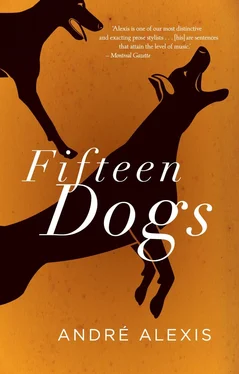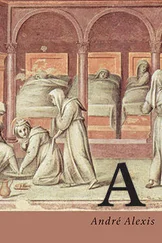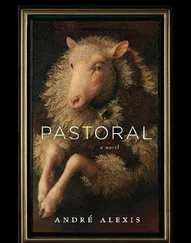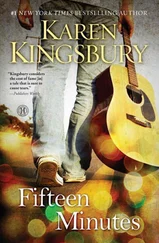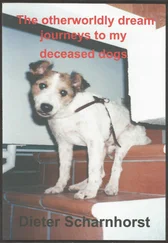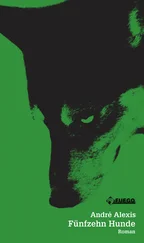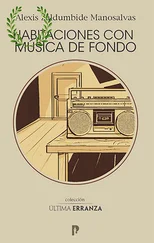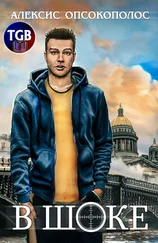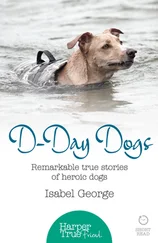The second corner was more difficult. He had to cross the street, then continue on around a curve where there was no sidewalk. He could see it in his mind. He knew where he was. He could smell Ivan Forrest Gardens before him to one side and the lake in the distance. He sat at the corner to collect himself, to ready himself for the crossing. It was then that he became conscious of humans approaching. No, what he heard was a group of humans bearing down on him: a crowd, it sounded like, coming fast, their soft-soled shoes slapping on the pavement, their breath escaping in collective gusts, and then the smell — sweat, rubber, genitals and dust. The wind brought it all to him like a foretaste of trouble.
What was going on? Was he in their way?
He made himself as unobtrusive as he could, curling his tail beneath him, crouching down. And then they were on him.
— Watch out for the dog!
Someone hit him.
— Christ on a cross! Get out of the way, doggy!
Someone hit him again, perhaps the same someone, stepping on his tail, pushing him aside. Prince yelped, made himself as compact as he could, then listened to the sound of them as they passed: feet slapping the road, dirt grinding on pavement, the soles of their shoes squeaking. Prince had always found these stampedes bewildering. But not knowing where the runners were coming from or how many there were made this instance alarming. At some point, one of the humans reached down to pat him on the head, and that contact, coming out of nowhere as it did, was the most frightening thing of all.
As suddenly as it was upon him, the stampede was gone, the sound of it receding. His heart beat violently and his body shook and it took him a long while — sitting at the intersection of Pine Crescent and Glen Manor — before he could go on without shaking. It occurred to him that it might be better to travel at night, to wait until all one could hear were crickets and the occasional, threatening shush of a passing car. But he pressed on, courageously stepping onto the street and making his way to the other side of Pine Crescent, then down into Ivan Forrest Gardens, where there were trails but no streets and no cars.
For a moment, as he made his way through Ivan Forrest, Prince almost forgot that he could not see. This was the part of his territory he knew best. He could navigate the terrain by the smell of his own urine alone. More: he could almost see the trees and posts where he had left his markings. He still went slowly, of course, the aches and pains of his body slowing him. He listened for humans, sniffed about for a piece of something to eat, stopped to accommodate such dogs as wanted to sniff his anus or genitals. Any fears he’d had that, vulnerable as he was, he might be attacked, were allayed. His fellow dogs could tell at once that he was in distress. They all expressed their sympathy, treating him with a kind of deference after licking his face and smelling his breath.
Prince spent what was left of the day in the gardens, recovering from a journey that would have taken him no time at all had he been younger or, even, sighted. That night, he slept close to a willow. He imagined himself hidden, but he was very nearly in the open, easily seen by all the creatures that walked, flew or crept past him on their way through the gardens.
In the early morning, he shivered himself awake and was almost surprised to discover that he was still blind. His blindness was so new it did not yet seem real. He was fifteen. His old bones — and his recent injuries from falling — made it painful for him to rise from the ground. His teeth chattered. The world was its morning self: quiet, the occasional, distant sound of a vehicle, the rattle and clang of the streetcar when it passed, the raw smell of a new day coming through the dew, mist and cold. He was disoriented and, now, more frightened than he’d been the previous day. He could smell the lake and he made his way toward it, leaving the park behind.
Prince had only one thing in mind: the house with the woman and three men. As it happened, circumstances favoured this part of his journey. There were few people about. Few people and few cars. He crossed Queen Street cautiously, stumbling like he was rabid, listening for cars or streetcars with every step. There were more streets to cross, more cars to listen for, but as he went south, the lake grew ever more present, leading him on to the end of the street where, all at once, the road was gone and he stumbled onto the boardwalk.
Even on his worst days, the lake buoyed his spirits. It was a measure of Prince’s distress, on this morning, that he stopped only to take in the smell of it — licking his nose and moving it back and forth in the direction of the water — before carefully following the boardwalk, all the way to the bottom of Neville Park and up to what would be his last home.
Prince’s first weeks in Neville Park were not unhappy, despite his blindness. He had survived a frightening journey, and the inspiration that came of survival — the exhilaration of having made it — carried him through the days, as he learned to negotiate the house without hurting himself.
He’d chosen his hosts well. The family took him in and they kept him even after discovering that he could no longer see. The woman in particular was kind. She put down food when it was time and took him for the short walks that were all he could manage, the aches and pains of his injuries in Glen Stewart almost crippling him, his deterioration quickening, it seemed, with his decision to settle in one place.
He missed his territory and his independence. In these first weeks, Prince would sometimes forget that he could not go out on his own until, forcing himself up to go to the door, he would bump into a chair or an appliance or a human. But there was compensation. As he accepted the idea that he would never see again, he began to rely on his memory and, in doing so, his memory became sharper (or, at least, more vivid), until he held a picture of the Beach in his imagination that he came to treasure almost as much as he had treasured the real thing.
Nor was death, whose approach he could feel, a source of worry. He thought about it, of course. He wondered when it would come and he mourned his ever-diminishing capacities, missing the things he had once taken for granted: sniffing out the breath of a dog he did not know, for instance, or running because the sheer pleasure of some great thing could not be expressed otherwise, or digging out bits of food half-buried in sand, or biting down on a newfound stick. The death that approached was a source of curiosity more than anything else. His final poems, which are among his most poignant, reflect Prince’s mood.
‘What is the name of he who comes’ is the last poem he composed and it is characteristic of the work done while he was blind.
What is the name of he who comes
with eyes closed and fingers black,
the one who draws the curtains back
when dawn has come?
‘Agha Thanatos’ or just plain ‘Death’?
When will I know which is right?
Prince’s poetry was, indirectly, the cause of his only true regret in the months before his death. As his strength faded, it became unavoidably clear that his work and his language would, with his death, disappear from the face of the earth. In the same way that the world had left him when he’d grown blind, so would his language leave the world. It would be effaced, all of the dogs who spoke it having died out.
To think that so necessary a thing could pass from the world so completely!
Was there nothing he could do to save it? Was there no way to pass it on? As he considered what might be done, Prince began to regret his attitude toward human language. He had avoided foreign languages, so that they would not influence his own. But had he learned another language, he might now have passed on his own. He had been selfish in trying to keep his language pure; better it had been influenced by another tongue than that it disappear altogether.
Читать дальше
